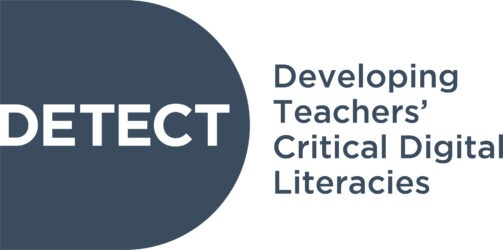This resource is a guide that intended mainly for teachers who work online and choose to do so in a cooperative manner. In any case, it may be used to foster strategies for teaching-related teamwork.
Video explanation Digital Communication and Collaboration dimension
Anastasia Gouseti from the University of Hull explains the Digital Communication and Collaboration dimension from the DETECT project framework
Critical Digital Literacies Framework
The Critical Digital Literacies framework for educators aims to capture the various dimensions and sub-dimensions of critical digital literacies which are vital for educators and students living, teaching and learning in a digital world.
Read the Framework here.
Empathy package – Information and tools for a more empathic daily life
The Empathy Package includes tools, guides and materials for learning and teaching empathy, such as study modules, videos, tests ans surveys, task templates and guidelines. There are separate sections that provide support for 1) children and young people, 2) teachers, and 3) parents. Some materials are only in Finnish, some also in English.
Guides for teen
These educational tools for students aim at raising awareness on the violent contents of media and promoting civic engagement and media/digital literacy. They have been developed under the project e-EAV (e-Engagement Against Violence), supported by the DAPHNE-programme 2012-2014.
About the project
“The project looked at the pronounced populist and racist movements and groups in seven European countries, i.e. Austria, Belgium, Bulgaria, France, Italy, Great Britain, Slovenia.
The project analysed media and their use by populism actors. It looked into communication strategies of movements and their messages directed against “the Other”. The aim was to contribute to empowerment of youth and of teachers in counteracting racism”

